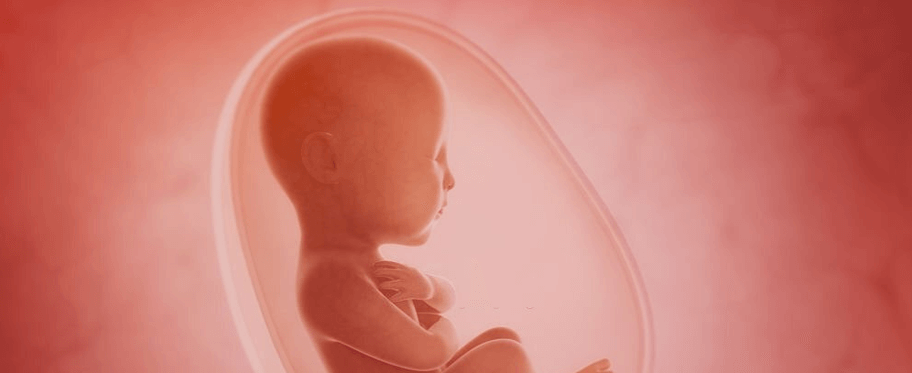
Advanced Maternal Age and Fertility
Advanced maternal age describes a pregnancy where the birthing person is older than 35. Pregnant people over age 35 are more at risk for complications like miscarriage, congenital disorders and high blood pressure. Screening tests can help detect certain congenital disorders.
What is advanced maternal age?
Advanced maternal age is a medical term to describe people who are over age 35 during pregnancy. Pregnancies have an increased risk for certain complications when the birth parent is 35 or older. Some of these complications are higher rates of miscarriage, genetic disorders, and certain pregnancy complications like high blood pressure or gestational diabetes.
Advanced maternal age pregnancy isn't treated much differently than a typical pregnancy. Your healthcare provider may suggest prenatal testing and monitor you more closely. Being mindful of your pregnancy symptoms and staying healthy becomes even more important when you're over age 35 because your risk for chronic conditions increases.
Despite these risks, people can have healthy pregnancies and healthy babies after 35.
What age are you considered advanced maternal age?
You're considered of advanced maternal age if you will be 35 or older at the time of your due date.
Is advanced maternal age the same as geriatric pregnancy?
Yes, they’re the same. Geriatric pregnancy is an outdated term and most healthcare providers prefer to use the term advanced maternal age.
Is it harder to get pregnant if you are over 35?
Healthcare providers have discovered that the biggest decline in fertility happens in your mid-to-late 30s. A decline in fertility means the quality and quantity of eggs in your ovaries decreases. This doesn't mean getting pregnant after 35 is impossible (it's very possible). It means 35 is the age when fertility starts to decline more rapidly and your chances for complications increase more significantly.
How does advanced maternal age affect my eggs?
You’re born with a set number of eggs. You release an egg at ovulation each menstrual cycle. The older you get, the fewer eggs you have. The eggs you do have are more likely to have chromosomal issues that lead to genetic disorders. A genetic disorder is a condition present at birth.
What are the risks associated with having a baby after 35?
All pregnancies come with risks; however, you or your baby are at increased risk for the following conditions when you are of advanced maternal age:
- Preeclampsia.
- Gestational diabetes.
- Premature birth or low birth weight.
- Expecting twins.
- Miscarriage.
- Down syndrome or other genetic disorders.
- Cesarean section (c-section).
- Stillbirth.
Why are there more complications if you’re over 35 and pregnant?
Advanced maternal age is associated with a decrease in egg quality. This means that as your age goes up, your egg quality goes down. "Older" eggs are more likely to cause chromosomal anomalies. A lot of these chromosomal anomalies are what healthcare providers screen for in the first trimester.
Another reason there are more complications after 35 is that your chances of developing most chronic medical conditions increase as you age. Your body simply responds to these conditions differently once you are older. These chronic medical conditions can affect pregnancy and delivery. For example, even a nonpregnant person is more likely to have high blood pressure at 35 than at 25.
OPTIONS FOR CONCEPTION
Older women may have difficulty conceiving due to age or other fertility issues. Medications that trigger ovulation may be helpful in these instances. When ovulation is regulated and you know exactly when it is going to occur, sperm can be introduced naturally or artificially at just the right time. This increases the rate of success.
Intrauterine insemination (IUI) may be necessary to help the process. High quality sperm are hand selected, washed and then inserted directly into the uterus. This procedure eliminates many of the obstacles sperm encounter when trying to reach the uterus naturally.
Another option for patients with advanced maternal age is in vitro fertilization (IVF). When there are difficulties in conceiving naturally, a couple may choose IVF where fertilization takes place in the laboratory. When an embryo is formed, it is then transferred back into the mother’s uterus where it grows into a baby.
When egg quality and quantity are of concern, and IVF may be questionable, donor eggs may be recommended. This can be a good option for women of advanced maternal age who still would like to become pregnant and carry it to term. Healthy eggs are retrieved from the donor, then combined with the selected sperm to create an embryo. The embryo is then transferred into the prospective mother’s uterus.
Advanced maternal age can pose challenges for older women desiring to start a family. We understand at Chawla Nursing Home and will do all we can to help your dream come true. Contact us to schedule a consultation with one of our fertility specialists, and discover your options.
Schedule An Appointment
Get your Appointment Confirm with us Easily

